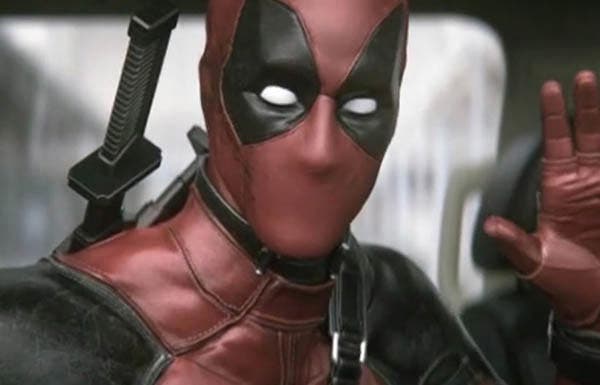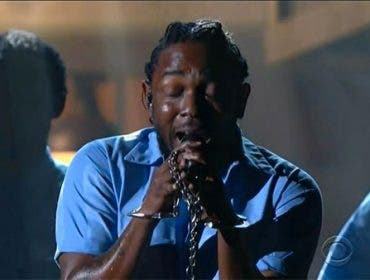Last weekend, the Marvel comics character “Deadpool” enjoyed record-breaking box office numbers. It also signaled a boost for star Ryan Reynolds (his largest opening box office record ever) and first-time director Tim Miller. It was a Guinness moment for 20th Century Fox as well: 2005’s “Star Wars: The Force Awakens” is only second to this. And to top this off, “Deadpool” experienced the biggest “X-Men” related debut in the history of the movie franchise.
Aided in no small part by a smart viral campaign and the determined hustle of Ryan Reynolds who was instrumental in the project’s development, “Deadpool” is also the most successful R-rated film since…. Well, does anyone out there remember that “The Matrix Reloaded” was R-rated? This has been extremely eye-opening for the industry since the common train of thought has been to keep mainstream output within the PG/PG-13 realm of classification. It ensures a larger audience of tweens to adults whereas an R-rating alienates anyone younger than seventeen years of age. However, “Deadpool” is not the first R-rated comic book adaptation, nor the first “adult” superhero movie. So why now? Why are all eyes on “Deadpool?”

20th Century Fox
Hollywood is a beholder of market trends and, therefore, tends to suffer from short-term memory loss. While previous adult takes on a comic book or superhero theme have displayed their own benchmarks of success, the idea that a ribald character who is a part of an established, family audience franchise universe could achieve any amount of popularity seems alien to some. Yet, a great deal of established characters have appeared in story arcs on paper that are absolutely not for kids. Frank Miller’s “The Dark Knight Returns” is arguably one of the most influential superhero series of its kind. Starring an elderly Bruce Wayne who gives up retirement to fight a new breed of baddies, that series is decidedly adult in tone and nature. The graphic design also inspired the look of “dark superhero” movies that came out during the 90s, a whole spate of flicks that were in turn inspired by Tim Burton’s “Batman” which in itself was directly inspired by Miller’s graphic novel.

Titles like Frank Miller’s “The Dark Knight” returns and Alan Moore’s “Watchmen” and “The Killing Joke” not only brought about a more adult sensibility to comic books but influenced the cinematic direction of superhero films as well.
Chris Nolan’s “Dark Knight” trilogy was not only also inspired by “Dark Knight Returns,” but Miller’s Noir-like “Batman Year One” along with further contributions from a mad genius named Alan Moore. Moore is not only the creator of yet another highly influential (and very adult) series titled “Watchmen,” but he wrote what is considered another seminal Batman tale and a fairly disturbing one at that. “The Killing Joke” pushes the envelope and then some on the Joker’s psychopathy not to mention the Caped Crusader’s fascistic violent tendencies. It was “The Killing Joke’s” tone that directly influenced Nolan’s own Batman trilogy.
And yet Nolan’s trilogy and Burton’s 1989 take were rated PG-13 whereas their inspirations were considerably more “hardcore” than that. It seems that for many decades Hollywood resisted the urge to push their superheroes into R-rated territory regardless of the source. Or not. Attempts have been made. Actually, a lot of attempts have been made and some have achieved their share of financial or critical success while others are long forgotten. Heck, there have been some very critically acclaimed comic book adaptions, films you probably didn’t even know originated as sequential images on a printed page. Titles like 2003’s “American Splendor,” 2001’s “Ghost World,” 2005’s “A History of Violence” and 2002’s “Road to Perdition” were not just met with positive reviews during their release, but enjoyed award recognition as well.
“Sin City” was a comic book adaptation. That was Rated-R. As was 1994’s “The Crow.” Both were fairly successful during their initial release (although morbid curiosity following the death of “Crow” star Brandon Lee might have had something to do with that).

Still from “The Crow,” an earlier example of successful comic book adaptation that was rated-R. Photo credit: Dimension Films
So “Deadpool” is not the first R-rated comic book movie, not by a long shot. Nor is it the first R-rated superhero movie. An argument could be made that films like “Splendor,” “Ghost World,” and “History of Violence” had a built-in audience made up of sophisticated, indie-film cinephiles as opposed to the vast market base made up of fan boys and girls. But take a look at this:
• 1994: “The Crow” based on the comic book character created by James O’Barr. Earned $11,700,000 during its opening weekend and eventually grossed over $50 million.
• 1998: “Blade” directed by Stephen Norrington. Based on the Marvel character. Grossed $17 million during its opening weekend. It’s sequel “Blade II,” which was also R-rated, pulled in an additional $15 million.
• 2006: “V for Vendetta” based on the graphic novel by Alan Moore, had grossed over $70 million from the United States alone and was the number one film during its opening weekend.
• 2007: “300” based on the graphic novel by Frank Miller. Grossed $28 million during its opening weekend.
• 2008: “Wanted” based on the comic miniseries by Mark Millar and J.G. Jones. Earned over $341 million worldwide.
• 2009: “Watchmen” adapted from the comic series by Alan Moore and Dave Gibbons (this is also the second R-rated comic book adaption directed by Zack Snyder. The first was “300”). Grossed over $55 million during its opening weekend. Interesting note: executives thought it could’ve made more if it weren’t for the film’s almost three-hour running time.
• 2010: “Kick-Ass” based on the comic book by Mark Millar and John Romita, Jr. Took in almost $20 million during its opening weekend in the United States (it had already earned $12 million internationally). Its sequel did not perform as well.
• 2014: “Kingsman: The Secret Service” based on the comic book “The Secret Service” by Dave Gibbons and Mark Millar. This is the second rated-R adaption directed by Matthew Vaughn (the first was “Kick-Ass”). Opened to over $27 million in North America alone.
Sure there have been failures. For every “Kingsman,” “Kick-Ass” and “Watchmen” there’s a “Dredd.” Based on a very popular character that appeared in the UK series “2000 AD,” “Dredd” was definitely a worthy entry into the club of comic book adaptations. But for some reason it did not find an audience until after its Blu-ray and DVD release. Looking at the above list of rated-R titles it would seem that “Dredd” is a bit of an anomaly. So, again, why is everyone making such a big deal over “Deadpool’s” success?

“Kingsman: The Secret Service,” “Blade” and “Kick-Ass” were financially successful rated-R comic book adaptations.
In Deadline an industry executive had this to say, “ the film has a self-deprecating tone that’s riotous. It’s never been done before. It’s poking fun at Marvel. That label takes itself so seriously, can you imagine them making fun of themselves in a movie? They’d rather stab themselves.” That comment not only encapsulates the short-term memory loss of the Hollywood machine, it betrays an almost blissful ignorance towards that which really resonates with a ticket-paying audience. To such an extent, even “Guardians of the Galaxy” director James Gunn felt compelled to publish this reply on Facebook:
“After every movie smashes records people here in Hollywood love to throw out the definitive reasons why the movie was a hit. I saw it happen with ‘Guardians.’ It ‘wasn’t afraid to be fun’ or it ‘was colorful and funny’ etc etc. And next thing I know I hear of a hundred film projects being set up ‘like Guardians,’ and I start seeing dozens of trailers exactly like the Guardians trailer with a big pop song and a bunch of quips. Ugh.” Gunn continues, “’Deadpool’ was its own thing. That’s what people are reacting to. It’s original, it’s damn good, it was made with love by the filmmakers and it wasn’t afraid to take risks.” The bottom line: “Deadpool” was successful because audiences crave originality.
James Gunn should know what he speaks of. Not only was “Guardians” irreverent and very, very funny, but Gunn also directed the 2010 superhero movie “Super.” Although it was not based on an established comic book property, the film itself is a heavy R. While it opened to disappointing box office numbers, it wound up becoming the must successful VOD release for IFC thus far.





